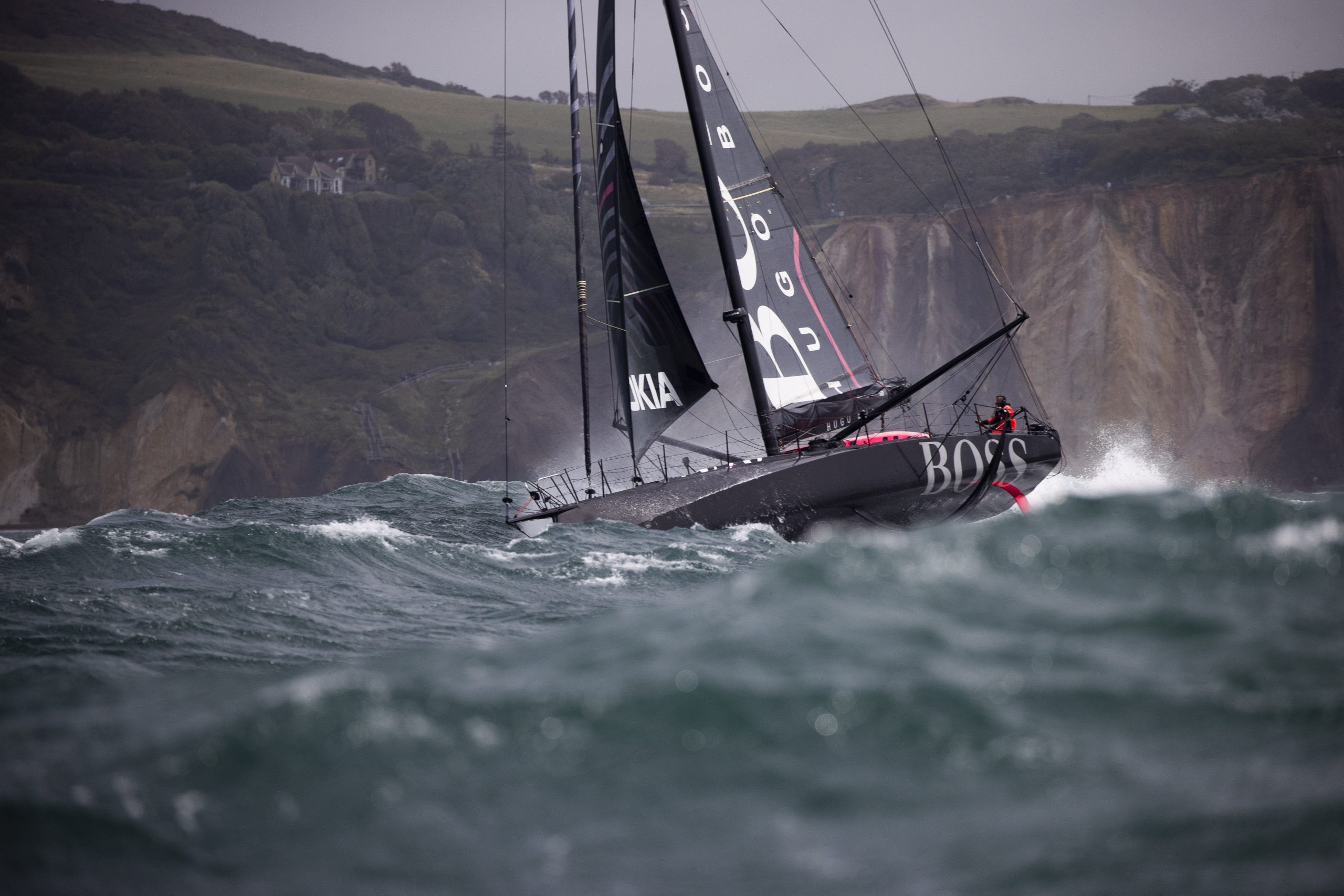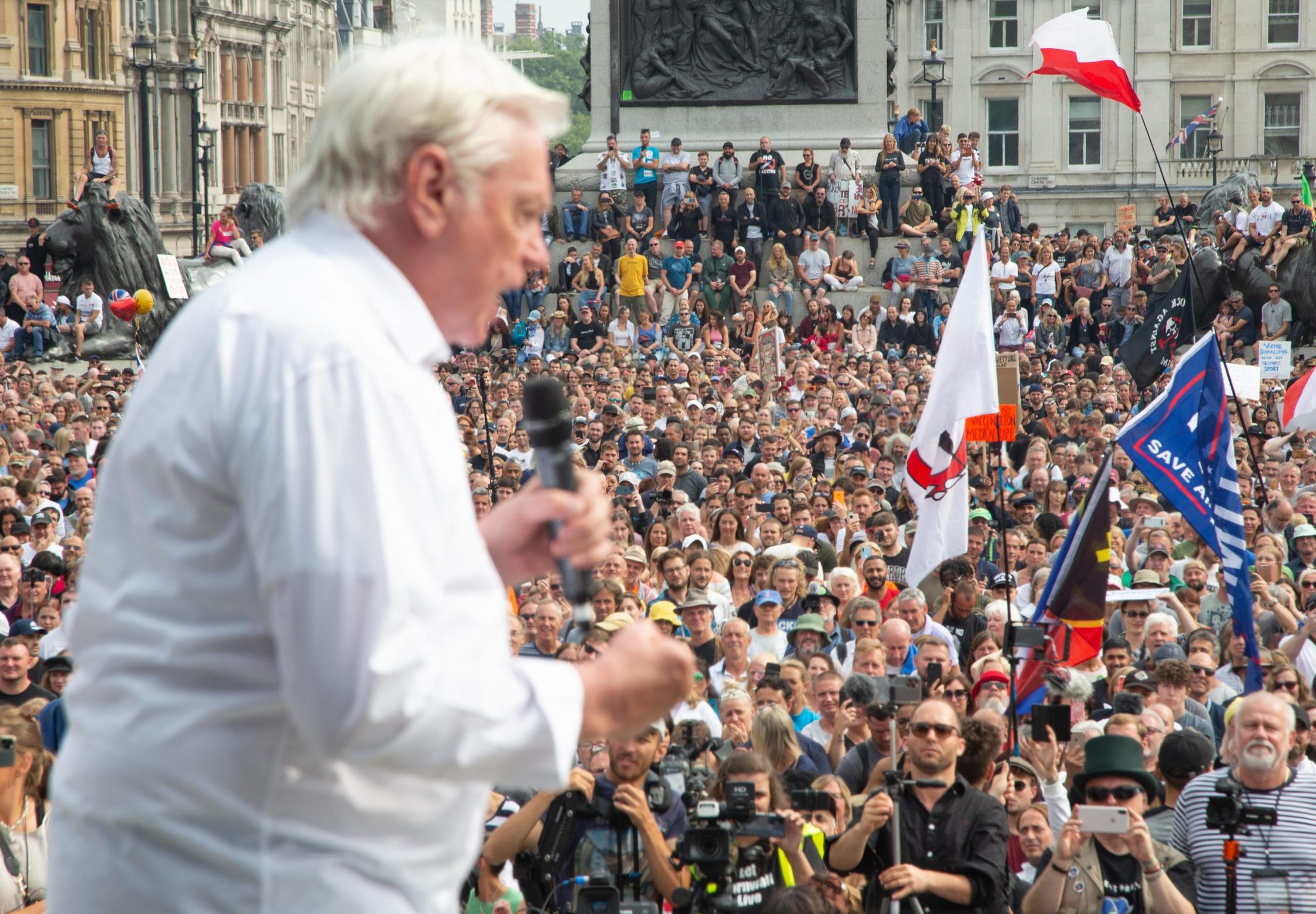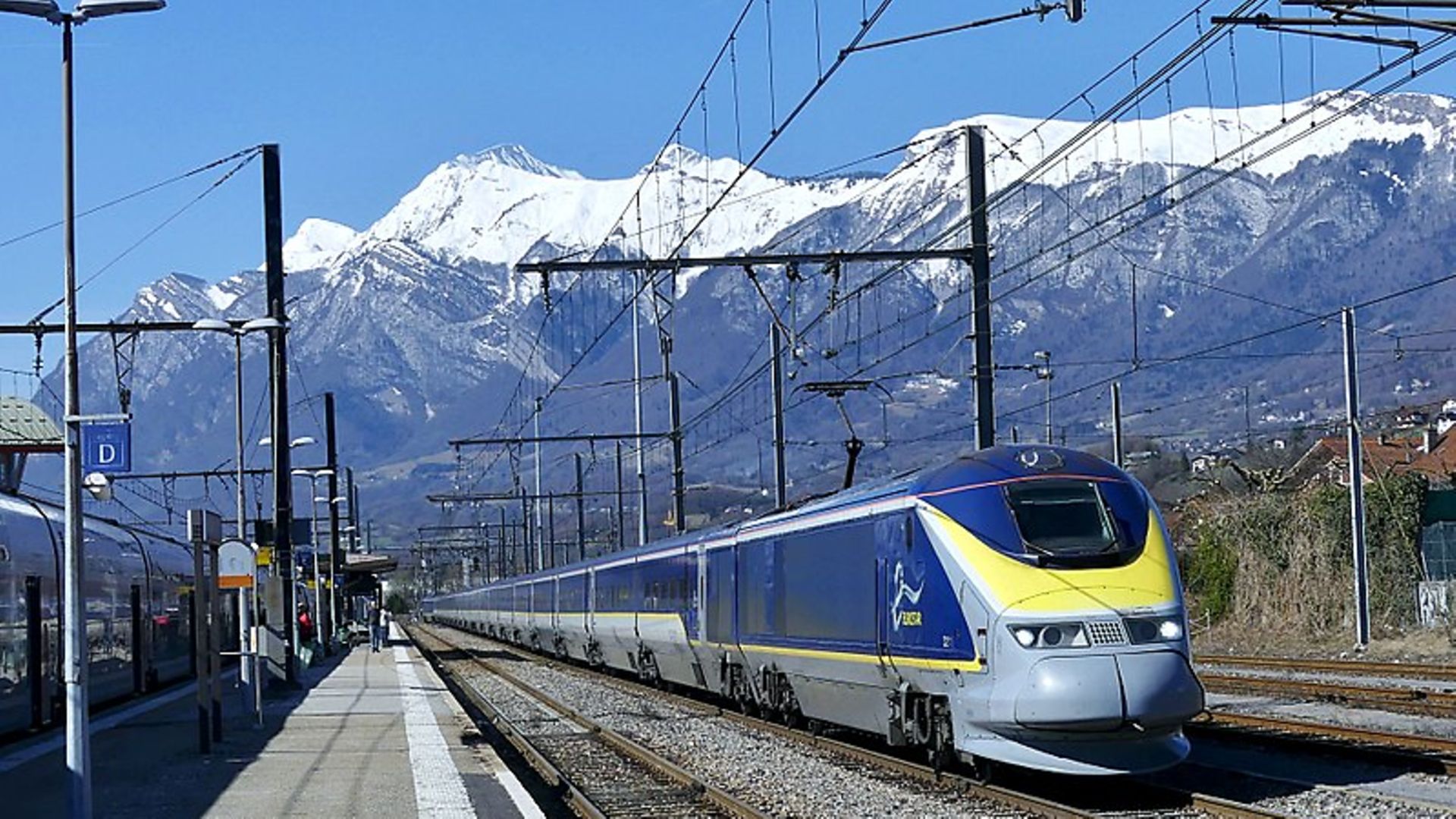The vessel – named Hugo Boss and co-skippered by British yachtsman Alex Thomson and Swiss sailor Ollie Heer – was among more than 300 boats to set off from the Royal Yacht Squadron line off Cowes.
From there, competitors head to the Fastnet Rock, 13km off the south-west coast of Ireland, then to a finish line at Cherbourg – the first time since it started in 1925 that the race will not end in Plymouth. Recent changes to travel restrictions mean that British competitors who stop in Cherbourg at the end of the race will not have to quarantine back in the UK.
Based on the shortest route, this year’s race is 695 nautical miles – 90 longer than the traditional course. The route sees the yachts pass seven landmarks: the Needles, Portland Bill, Start Point, the Lizard, Land’s End, the Fastnet Rock and Bishop’s Rock off the Scillies.
The Fastnet – which takes place every two years – is considered one of the world’s most gruelling offshore races. Competitors often face Westerlies that are strong to gale force in strength and must navigate a succession of low pressure systems which advance on Ireland and Britain across the North Atlantic, creating a constantly moving weather pattern.
This year’s race offered characteristically challenging conditions which saw a number of early retirements and the coastguard called in to assist one yacht in difficulties off Portland.
The most notorious race in the competition’s history was in 1979 when a severe storm resulted in 19 deaths and the involvement of some 4,000 people – including the Irish Naval Service’s entire fleet – in what became the largest ever peacetime rescue operation.



